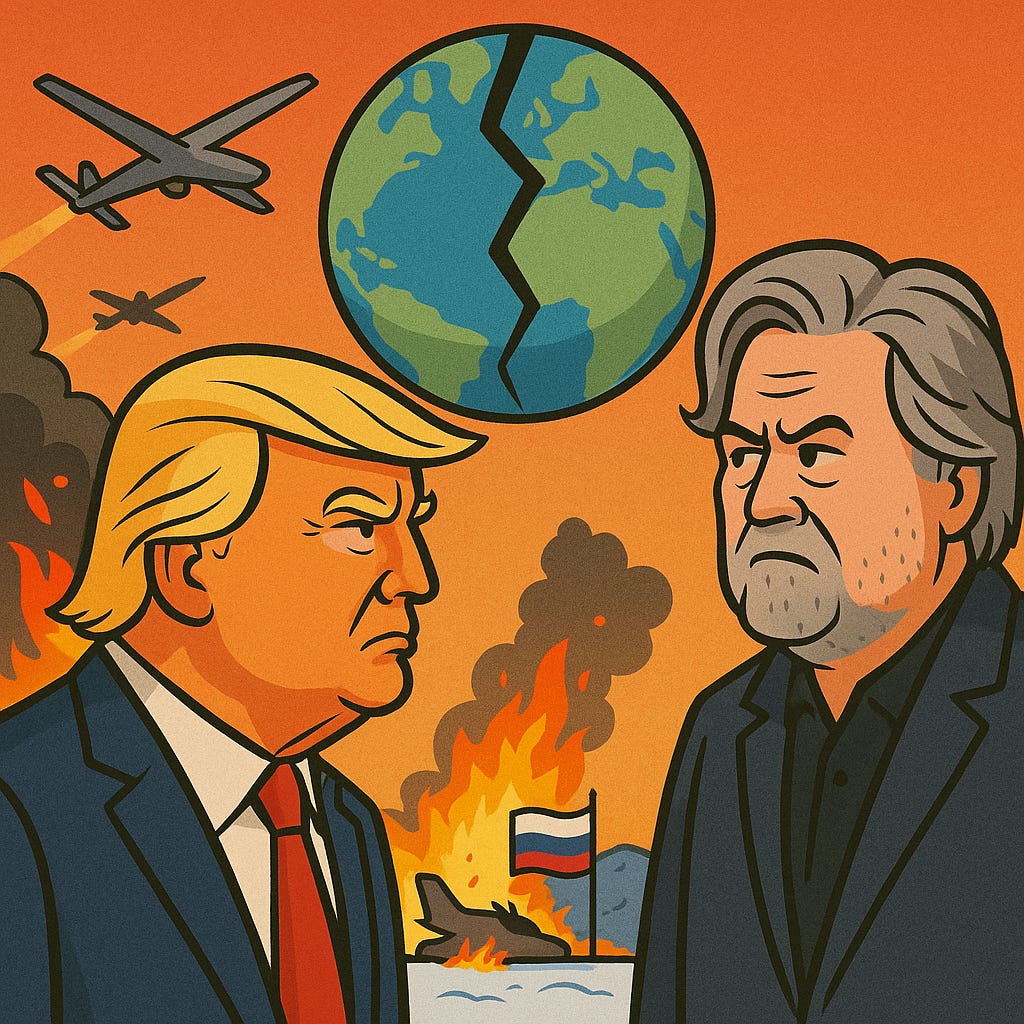Trump’s Ukraine Rorschach test
How Trump deals with Russia will determine whether he can lead his MAGA movement or must follow it
The moment of truth came when Ukraine's drones lit up Russian airfields deep in Siberia. As 40 aircraft burned and Ukrainian officials celebrated their strategic masterstroke, the fault lines within Trump's coalition snapped into sharp relief. Steve Bannon demanded Ukraine be condemned and Lindsey Graham "arrested" for supporting Kyiv. Meanwhile, Trump …




